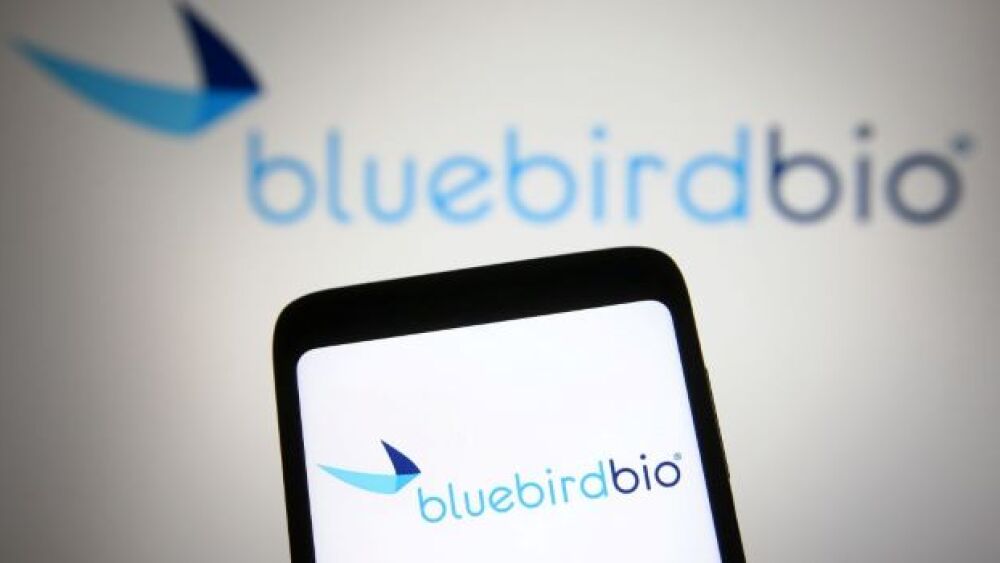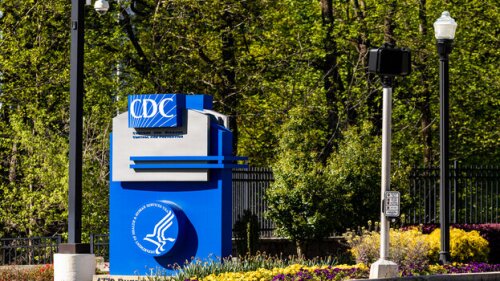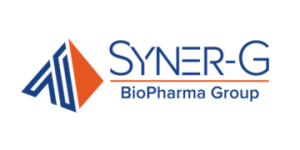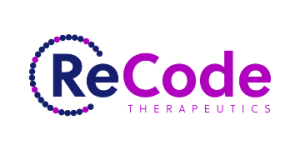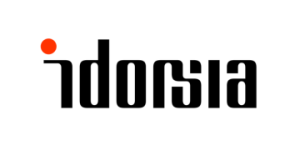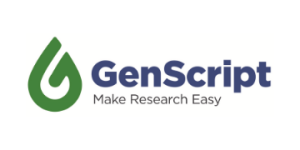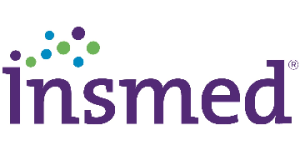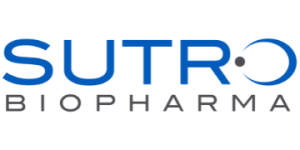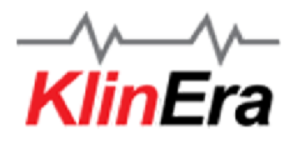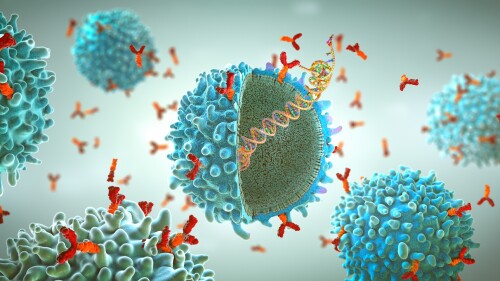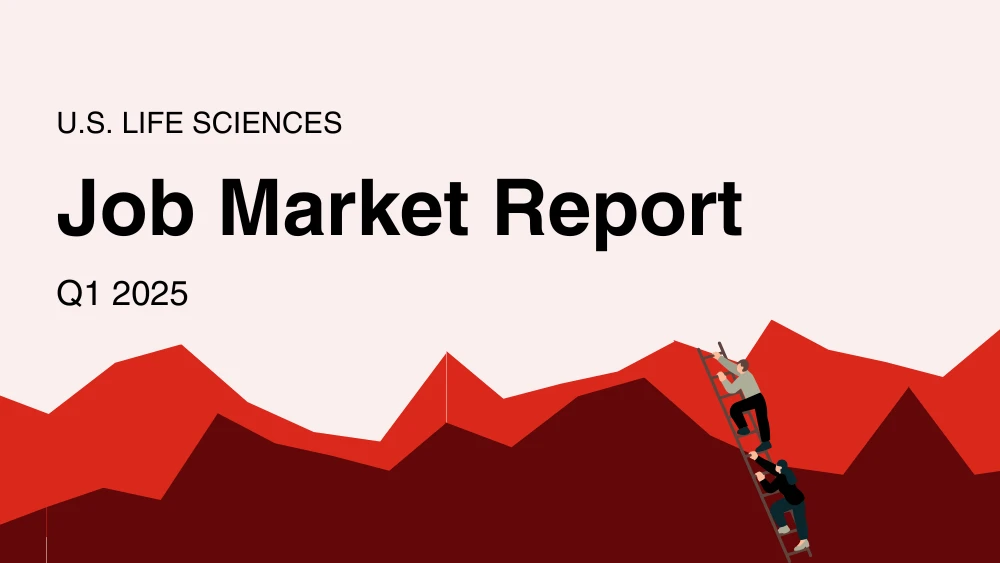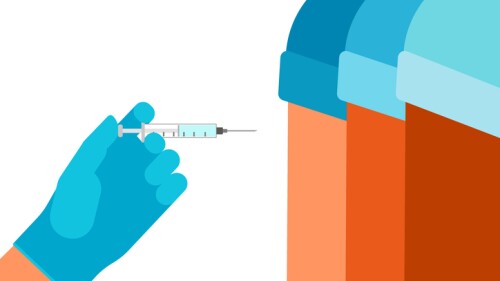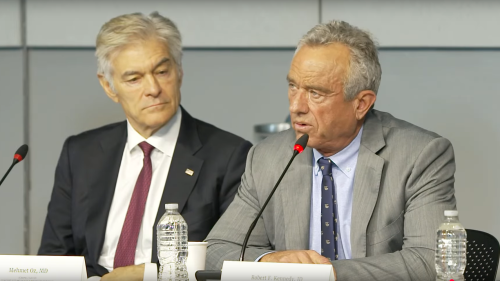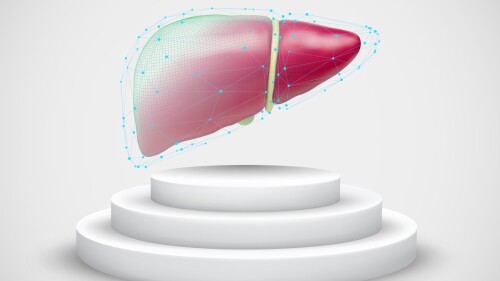This is the third indication for Fabhalta after Novartis won FDA approval of the small molecule in paroxysmal nocturnal hemoglobinuria and primary immunoglobulin A nephropathy.
The label expansion could help J&J establish Tremfya as a successor to Stelara, which is now facing a growing biosimilar challenge.
After withdrawing its nomination for Dave Weldon last week, the Trump administration is now reportedly considering Texas Republican Michael Burgess to head the Centers for Disease Control and Prevention.
Adaptimmune is rolling out its T cell therapy Tecelra for synovial sarcoma, recording $1.2 million in sales since its approval in August 2024. Nevertheless, it is pausing development of two oncology assets to save money.
Paratek Pharmaceuticals is betting that OptiNose’s chronic rhinosinusitis treatment will be a partner to its antibiotic treatment Nuzyra.
After Sarepta reported the death of a patient who had recently taken the gene therapy Elevidys, patient advocacy group Parent Project Muscular Dystrophy stepped up—as they always do.
FEATURED STORIES
RFK Jr. as HHS head is perhaps President-elect Donald Trump’s most controversial Cabinet pick now that Matt Gaetz has withdrawn as nominee for Attorney General. With Dr. Oz tapped to lead CMS and maybe Marty Makary at the FDA, it’s going to be quite the show.
A handful of billion-dollar deals in the rare disease space highlights the uptick in Big Pharma’s investment, but it’s still extremely low compared to the money flowing to more common indications.
While the full impact of the Supreme Court decision remains unknown, the new regulatory landscape could be a net positive for drug developers.
FROM BIOSPACE INSIGHTS
In a year when eradicated diseases are on the uptick in America, how will American children survive RFK Jr.’s vaccine scrutiny and inconsistency? Two experts call on pharma and regulatory bodies to rebuild trust.
LATEST PODCASTS
In this episode of Denatured, presented by IQVIA, BioSpace’s head of insights Lori Ellis discusses how AI transformation can help organizations navigate a rapidly evolving regulatory environment with senior director of regulatory innovation and technology, Michelle Gyzen.
Sanofi and BMS paid big money for rare disease and cancer assets, while Regeneron got in the obesity game; AstraZeneca, Gilead and Amgen shone at ASCO; RFK Jr. and the CDC appeared to disagree over COVID-19 vaccine recommendations and several news outlets are questioning the validity of the White House’s Make America Healthy Again report.
HHS Secretary RFK Jr. removes the COVID-19 vaccine recommendation for healthy kids and pregnant women—the latest in a string of changes to vaccine policies; judge issues an order to halt HHS’ reorganization and mass layoff plans; Rocket Pharmaceuticals’ pivotal Danon disease trial is on hold after a patient death; and President Trump has named Mehmet Oz to spearhead his Most Favored Nation drug pricing policy.
Job Trends
Redwire Corporation announced that it is partnering with Eli Lilly and Company on a second spaceflight mission using its in-space pharmaceutical manufacturing platform, PIL-BOX.
Subscribe to Genepool
Subscribe to BioSpace’s flagship publication including top headlines, special editions and life sciences’ most important breaking news
SPECIAL EDITIONS
A new generation of checkpoint inhibitors is emerging, with some showing more promise than others. From recent TIGIT failures to high-potential targets like VEGF, BioSpace explores what’s on the horizon in immuno-oncology.
Peter Marks, the venerable head of the FDA’s Center for Biologics Evaluation and Research, has been forced out. In this special edition of BioPharm Executive, BioSpace takes a deep dive into the instability of the HHS.
Year-over-year BioSpace data show biopharma professionals faced increased competition for fewer employment opportunities during the first quarter of 2025.
DEALS
-
Following its Scorpion Capital controversy in March, Harmony Biosciences is seeking to deepen its pipeline with an acquisition of Zynerba Pharmaceuticals’ cannabinoid therapies for neuropsychiatric disorders.
-
Week in Review: Novo Nordisk Riding High, Novavax in the Black (For Now), Nektar Sues Lilly and MoreNovo’s weight-loss drug Wegovy improves cardiovascular outcomes, Novavax posts surprise Q2 profit, while Nektar Therapeutics files lawsuit against Eli Lilly for misconduct in drug development deal.
-
The Securities and Exchange Commission has joined the mounting antitrust scrutiny of Illumina’s acquisition of the cancer diagnostics company, according to an SEC filing by the DNA sequencing giant.
-
Amid record sales of its obesity treatment Wegovy, as well as diabetes drugs Ozempic and Rybelsus, Novo is buying Canadian biotech Inversago Pharma to further boost its weight-loss pipeline.
-
The acquisition will bring gene therapy company Decibel Therapeutics into Regeneron’s fold after a six-year partnership, targeting different forms of congenital and monogenic hearing loss.
WEIGHT LOSS
-
The startup will use the money to fund a Phase II trial in combination with Eli Lilly’s Zepbound in the hopes of increased weight loss results, while attempting to protect body composition from muscle wasting.
-
Analysts say Novo Holdings made the right decision last week in scooping up the CDMO to increase manufacturing capacity for Novo Nordisk’s diabetes and weight-loss drugs.
-
Two Florida courts have sided with Novo Nordisk against Ekzotika and Effinger Health, agreeing that their compounded versions of semaglutide are against the law. The Danish pharma has reached confidential settlements with both companies.
-
Biopharma’s latest earnings season was, in a word, predictable. Companies are consistently beating Wall Street earnings and revenue estimates as they set low expectations for investors.
-
While analysts are bullish on Novo Holdings’ $16.5 billion acquisition of Catalent, they say it raises questions for companies that have contracted the CDMO for manufacturing.
POLICY
-
Moderna on Thursday said its investigational mRNA-based therapy for methylmalonic acidemia has been selected for the FDA’s accelerator program for rare diseases, dubbed START.
-
Gilead Sciences’ primary biliary cholangitis candidate seladelpar and Ipsen’s PBC asset elafibranor both showed encouraging Phase III results Wednesday, as they face looming FDA decision dates.
-
The U.K.’s National Institute for Health and Care Excellence has endorsed the use of Eli Lilly’s Zepboundfor weight management in patients with BMI of 35 kg/m2 and above and at least one weight-related comorbidity.
-
An FDA advisory committee on Tuesday overwhelmingly rejected Lykos Therapeutics’ investigational MDMA-assisted therapy for post-traumatic stress disorder due to safety concerns and how the company conducted its trials.
-
Illumina on Monday announced that its board of directors is spinning off Grail and has applied to list the cancer diagnostics company on the Nasdaq.
First, prioritize these criteria according to your own desires and needs. Which aspects of the offer do you most value?
When you’re ready for a new job, contacting employers is a no-brainer. But the same kind of clear-cut call to action doesn’t necessarily apply to contacting recruiters.
As you enter the job market (or a new industry) the salary range of positions you’re qualified for is likely top of mind. But how do you figure out what a realistic range is for what you’re after?
Remember, though it may be a tad uncomfortable in the moment, being gracious and polite while you decline a job offer can build good karma for the future.
Ask yourself these questions to get an idea of whether a new job should be in your near future.
Establishing rapport with someone you’ve just met who also may hold your future in their hands is not easy. Continue reading to discover how to establish rapport with your interviewer.
HOTBEDS
REPORTS
In this Employment Outlook report, BioSpace explores current workforce sentiment, job activity trends and the prospective job and hiring outlook for 2025, particularly as it compares to the previous year.
BioSpace’s third report on diversity, equity, inclusion and belonging in life sciences examines dramatic shifts in attitude around diversity initiatives.
CANCER
-
Until compelling surface targets for lung cancer are developed, antibody-drug conjugates will fail to treat most patients with lung cancer, experts told BioSpace.
-
Pfizer’s Wyeth unit notched a legal victory over AstraZeneca on Friday as a federal jury found the British-Swedish company violated two key patents in developing and marketing its lung cancer drug Tagrisso.
-
Bolstered by promising response data from its Phase II study, Amgen announced Thursday it got the FDA’s green light for its first-in-class bi-specific T-cell engager Imdelltra for extensive-stage small lung cancer.
-
Following back-to-back approvals in lymphocytic leukemia, Bristol Myers Squibb’s CAR-T therapy Breyanzi on Wednesday won the FDA’s green light for relapsed or refractory follicular lymphoma.
-
Two of the five fatalities were found to be unrelated to MacroGenics’ investigational antibody-drug conjugate vobra duo, while the other three are still under investigation.
NEUROSCIENCE
-
After a groundbreaking year in the Alzheimer’s space, Parkinson’s disease researchers express renewed hope based on a greater biological understanding of neurodegeneration.
-
The companies, which have been partners for a decade on various research programs, are pooling their efforts in two early-stage programs for Alzheimer’s and Huntington’s diseases using RNA-targeting medicines.
-
Pivotal clinical trials in Alzheimer’s disease, Huntington’s disease, amyotrophic lateral sclerosis and multiple sclerosis are expected to read out this fall. Here’s a closer look.
-
Following a controversial Rett Syndrome trial last year, Anavex Life Sciences’ blarcamesine has claimed another clinical victory—this time in an Alzheimer’s disease Phase IIb/III study.
-
With a potential combined market value of $30 billion, BioSpace takes a deep dive into the Phase III data supporting Eisai and Biogen’s Leqembi and Eli Lilly’s investigational donanemab.
CELL AND GENE THERAPY
-
In a roundtable event on Thursday, HHS Secretary Robert F. Kennedy Jr. said his office will work to eliminate barriers that keep cell and gene therapies from the market.
-
Interim results from a small group of children in a Phase I/II trial are essentially in line with that of Elevidys, according to BMO Capital Markets analysts.
-
The Platform Technology Designation, which predates the current FDA leadership, is designed to streamline the drug development and review process, particularly for rare diseases.
-
J&J has a multi-year head start, but Gilead believes it can win market share by delivering a drug with better safety and at least as good efficacy.
-
While an adverse event reported in Intellia’s gene therapy trial was a “non-concern” for analysts, it follows a handful of patient deaths in other trials for the modality and sent the company’s stock tumbling in pre-market trading.

